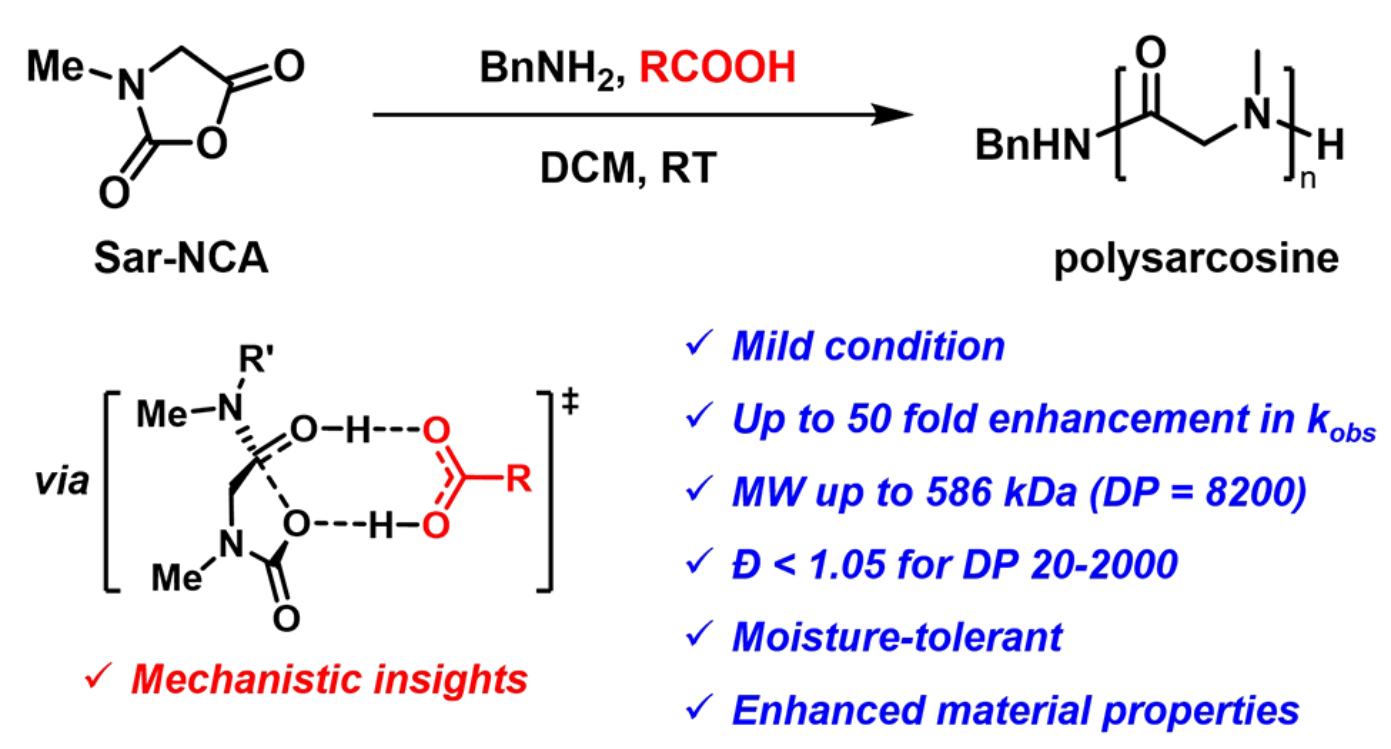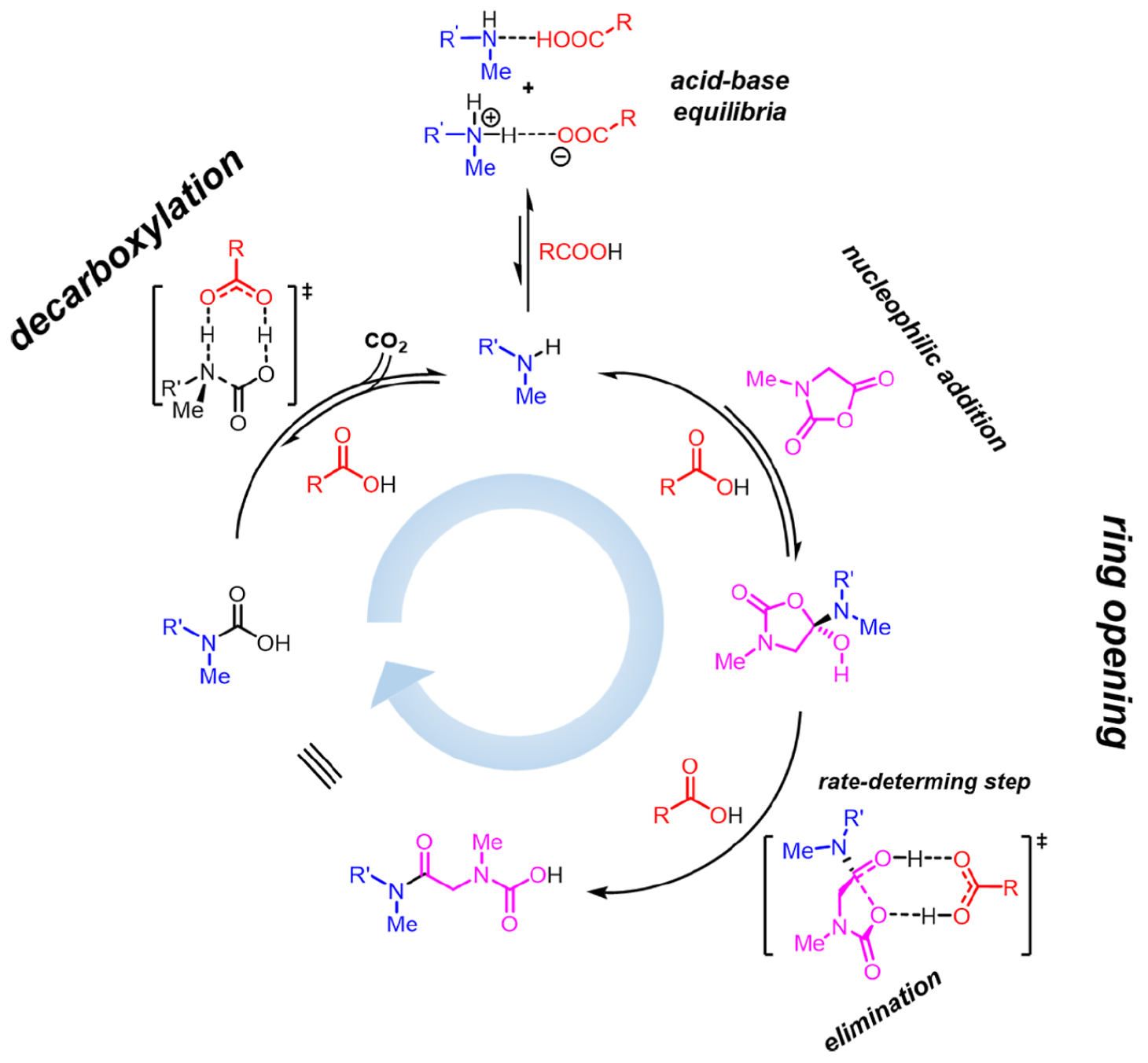The rapid and controlled synthesis of high-molecular-weight (HMW) polysarcosine (pSar), a potential polyethylene glycol (PEG) alternative, via the ring-opening polymerization (ROP) of N-carboxyanhydride (NCA) is rare and challenging. In the latest work of Prof. Hua Lu and coworkers (Doi: 10.1021/jacs.3c14740), they report well-controlled ROP of sarcosine NCA (Sar-NCA) catalyzed by various carboxylic acids, which accelerate the polymerization rate up to 50 times, and enables the robust synthesis of pSar with unprecedented ultra-high molecular weight (UHMW) up to 586 kDa (DP ~ 8200) and exceptionally narrow dispersity (Ð) below 1.05. Mechanistic experiments and density functional theory (DFT) calculations together elucidate the role of carboxylic acid as a bifunctional catalyst that significantly facilitates proton transfer processes and avoids charge separation, and suggest the ring-opening of NCA, rather than decarboxylation as the rate-determining step. UHMW pSar demonstrates improved thermal and mechanical properties over the low-molecular-weight counterparts. This work provides a simple yet highly efficient approach to UHMW pSar and contributes new fundamental insights not only for the ROP of Sar-NCA but also for other NCAs.


This work was supported by the National Natural Science Foundation of China, Beijing Natural Science Foundation, Li Ge-Zhao Ning Life Science Youth Research Fund, and Beijing National Laboratory for Molecular Sciences.
Original link for the paper: https://doi.org/10.1021/jacs.3c14740